Search Results
Showing results 601 to 620 of 786
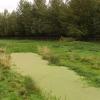
Exploring an Ecosystem
Source Institutions
In this ecology activity, learners make a model water-based ecosystem called a terraqua column. The column (in a large soda bottle) includes pond water, duckweed, sand or gravel, and small snails.
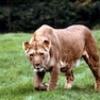
Quick Frozen Critters
Source Institutions
In this activity, learners play an active version of freeze tag based on predator/prey relationships.

Lupine and Butterflies
Source Institutions
In this two-part activity about the connection between the lupine plant and butterflies, learners first read "Miss Rumphius," a storybook about lupine by Barbara Cooney.
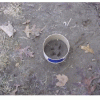
Makin' Tracks
Source Institutions
In this activity, learners make plaster casts of an animal track to learn more about animals and animal behavior.

Nature Walk
Source Institutions
In this activity, learners take an indoor nature walk and discover various objects that have been brought in from the outdoor environment.

Sharks: Taking a Bite Out of The Myth
Source Institutions
In this activity, learners will explore trends in shark populations using shark landing data from the National Marine Fisheries Service.

Moving On Up: Capillary Action 1
Source Institutions
Over the course of several days, learners explore the property of water that helps plants move water from roots to leaves or gives paper towels the capacity to soak up water.

Statistics: Creature Features
Source Institutions
In this math activity, learners collect, organize, and analyze a set of data related to types of animals in the temperate forest.
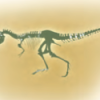
Digging Deeper!
Source Institutions
In this activity, learners explore dinosaur skeletons and anatomy. Learners make observations about a T. rex skeleton diagram and then measure the skeleton length and width.

Fruits and Vegetables: Color Your Plate
Source Institutions
In this activity, learners explore healthy choices related to the foods they eat. The importance of a variety of fruits and vegetables to a healthy diet is the focus of the experience.

Water Bugs
Source Institutions
Some bugs can walk on the surface of a lake, stream, river, pond or ocean.
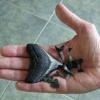
Chomp
Source Institutions
In this activity (page 5 of pdf), learners explore the relationships between the shape and structure of a shark's teeth and the food it eats, and then create their own shark tooth from clay.

What-a-cycle
Source Institutions
In this activity, learners act as water molecules and travel through parts of the water cycle to discover that it is more complex than just water moving from the ground to the atmosphere.
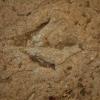
Dinosaur Footprints & Fossils
Source Institutions
In this activity, early learners simulate fossil prints in play dough or clay.

Population Study Game: Oh, Deer!
Source Institutions
In this activity, learners model a population of deer and see how the number of deer changes over time.

Slowing the Flow
Source Institutions
In this experiment, pairs of learners explore how cold water affects circulation. The mammalian diving reflex (MDR) slows circulation when the body is exposed to cold water.
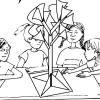
Build a Tree
Source Institutions
This activity (on pages 13-18) has learners build a model tree and then figure out how to make their tree stand up by itself.

Frog Eggs
Source Institutions
In this activity, learners compare frog eggs to chicken eggs to better understand why frog eggs need water. Learners compare a boiled chicken egg to "frog eggs" represented by boiled tapioca.

Audio Memory
Source Institutions
In this interactive game, learners will test their memory of animal and insect sounds. Flip over cards, listen to the sound, and try to find the ones that match.
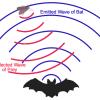
Bat Echolocation
Source Institutions
In this activity, learners investigate how bats use echolocation to navigate. One learner is assigned to be a bat, while the other learners are selected to be either moths or trees.
